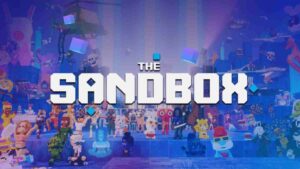From Blockchain Roots to Full PC Launch
Wildcard has spent the last year building momentum in the Web3 space, but it’s now preparing for a more traditional route. The team confirmed that in October 2025, Steam release, marking the game’s move beyond early blockchain exclusivity and into wider PC territory.
Originally positioned within the Web3 ecosystem, the game’s shift to Steam signals a broader appeal push. It still carries its blockchain backbone, but the focus for this release appears to be squarely on mechanics and accessibility.
A Hybrid of MOBA Brawling and Card-Based Strategy
At its core, Wildcard blends real-time arena combat with a deck-building layer. Players control champions in third-person, while summoning units from a preset card deck. The result is a mix of brawler-style positioning and tactical resource timing, somewhere between Clash Royale and a stripped-down MOBA.
Matches are tight, objective-based, and structured for both short-session play and competitive repeatability. While it borrows from several genres, Wildcard builds most of its identity around live-action control layered with strategic deployment.
Blockchain Elements Stay, but Quietly
Despite launching out of the Polygon ecosystem and still using blockchain under the hood, Wildcard’s Steam version will downplay token-based mechanics. NFT characters and digital ownership are still part of the infrastructure, but don’t interfere with gameplay for traditional users.
This isn’t a play-to-earn model in the usual sense. Instead, the Web3 layer supports cosmetic ownership, player-created assets, and possibly future trading. What matters most is that the game doesn’t require wallet integration to function. It’s being framed as blockchain-optional, not blockchain-first.
Steam Release Could Redefine Its Player Base
The move to Steam isn’t just a port. It opens Wildcard to a broader and potentially more skeptical audience, one that’s largely resistant to anything resembling a crypto-first game. That’s where the test lies. If the gameplay holds on its own, it might sidestep the backlash that’s greeted other blockchain projects.
It also positions Wildcard to scale up its esports and competitive ambitions. PC players bring different expectations for precision, matchmaking, and long-term content flow, so this release could also be a stress test for how well the design holds up across platforms.
Wildcard’s Next Phase Looks More Traditional
The Steam launch doesn’t erase the game’s Web3 origins, but it does mark a clear pivot. It’s now a competitive strategy brawler first, and a blockchain-integrated product second. That’s a shift that more hybrid games are starting to make, especially those looking for longevity outside the token-driven bubble.
Wildcard’s October arrival on Steam puts it in the hands of players who care less about asset ownership and more about whether the mechanics feel tight, the loop feels rewarding, and the matches stay fun over time. If it can meet those standards, the blockchain part becomes just a footnote.
Web3 Analyst & Play Blockchain Games Guide
CryptoKit breaks down Web3 gaming like it’s second nature. From tokenomics to airdrop strategies, she turns blockchain chaos into clear, actionable advice for players who want to win more than XP.




